Readers of this article who know me on Facebook probably will have noticed I asked on several sites that cater to Christian writers of science fiction, fantasy, and horror, what they thought were some of the most original story worlds of all time. I apologize that it’s not possible for me to include everyone’s choice. That’s true even though I decided I couldn’t narrow this list down to just one set of ten. This week I’ll look at the ten best “secular” (or not specifically Christian) stories and next week I’ll do the top ten original story worlds from Christian authors.
Edit By accident, I included the Myst series on this list. However, I was repeatedly and clearly assured after the fact that its authors are Christians. So, I’m moving Myst over to the part 2 list, and editing this post to include The Call of Cthulu short story. (Of course Alice in Wonderland also had a Christian author, but I’m leaving it where it appears on this list.)
Why “most original” story worlds?
Speculative fiction is different from setting a story in a realistic scenario. Plot and characters are important for any kind of story, but in speculative fiction, the author gets to create the world from scratch if he or she chooses to do so. Yeah, some writers for a variety of reasons pick settings that are realistic or close to it (like Urban Fantasy). But one of the greatest powers science fiction, fantasy, and horror can choose to exercise is to make completely unfamiliar worlds that nonetheless make internal sense. The creation of these story worlds I would say is a unique achievement, often bolstered by specific story ideas that make a tale more than just entertainment. Speculative fiction can be and has been commentary on ordinary life. Science fiction comments in particular on the potential power of technology. Epic fantasy weighs in on the ultimate nature of good and evil, while horror looks at the inner darkness so common in our world, usually contrasting it with light. Much of this commentary, these powerful ideas found in speculative fiction, are found in the story worlds themselves. Rather than plot or character.
So strongly original story worlds often make the best stories–or at least the ones that impact people in the real world the most. These are the stories that get people to think about what could and could not be, what is and is not true. And helps them understand all of that better.
How did I choose and rate them?
I’ve considered novels, short stories, television, and movies. I admit to a sampling bias–media I’ve read or seen myself was more likely to make this list than media I haven’t seen myself. That’s true even though I did ask for other people to include their favorites and have included here two story worlds I personally don’t know much about and had to research (Myst and One Piece). Inevitably a story world I know little about is rated less objectively than ones I know.
I rated rated each story from 1 to 5 on originality, influence on other stories, sales influence, and influence on public discourse concerning the themes these tales cover. All of these stories rated between eleven and seventeen in my system with a number of ties. But the assigning of numbers was itself a bit subjective. So I also assigned subjective rankings to the ties.
So, starting from number 10 and working our way to 1:
10. Ringworld

Looking at a ringworld from the inside. Image copyright: Trevor B. Williams
1970’s Ringworld is a load of fun for people enamored with technology and what the future of humanity might include in terms of tech. While it doesn’t include even the Internet as we know it, it features human beings with near-infinite lifespans, x-ray lasers, inertialess drive, variable swords (like a light saber, but better), super materials, and most importantly, a world in the shape of a ring, that produces scientifically realistic artificial gravity by spinning. Also featuring interesting and convincing aliens and an oblique reference to the Tree of Life in the Bible–though the “real” tree of life is a fruit a human being can’t resist eating that’s designed to convert a human into another stage of life, a Pak (who are bald and toothless, with over-sized joints, which is supposedly why humans lose hair and teeth and suffer from arthritis as we age). Certainly a thought-provoking series in a number of ways.
Ringworld wasn’t wholly original, borrowing from the concept of a Dyson Sphere and many other tech ideas. So I rated it a 4 on originality. Ringworld has had limited influence on certain other stories. For example, the video game Halo is set on a “ringworld”–so I gave it a 3 for influence. Ringworld sold well for a science fiction book but didn’t become an all-time best-seller, so it got 3 for sales. As far as influence on public discourse goes, I think only hard-core fans of Ringworld would ever talk about its meaning, even though it’s thought-provoking, so it rated a 1. 11 points total.
On the downside, Ringworld features a story setting that like so much of science fiction, simply assumes humans will no longer be religious in the distant future. There are no references to God or faith that I remember. The series includes some graphic sexual content. Overall, a negative moral influence in my estimation.
9. The Call of Cthulu
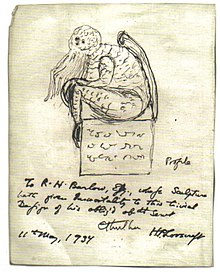
Original sketch of Cthulu by H.P. Lovecraft. Image source: Wikipedia Commons.
The first version of this post omitted H. P. Lovecraft altogether, a serious error. Overall, what’s called the “Cthulu Mythos” has been hugely influential and was quite original, which would earn the overall “mythos” a significantly higher place on this list than the short story that introduced Cthulu itself. However, the mythology of Cthulu built over time, over a body of short stories and now anthologies, games, and video games. This placement at number nine is based on Lovecraft’s original introduction of Cthulu.
In the short story The Call of Cthulu, H. P. Lovecraft introduced cosmic horror, which was an entirely new genre. Personifying the uncaring universe of evolution as a hostile alien, worshiped by human beings driven insane by the very nature of the god-alien, the story rates a 5 for originality. Lovecraft’s overall body of work has been far more influential than this short story itself, so we’ll put it at a 3 for influence on other stories. As far as sales are concerned, while Cthulu-related stories have become top sellers, the original short story never sold well, 2 points. As far as getting people to talk about the nature of a universe without God, certainly many people do so, but I think most people, even Lovecraft fans, are more aware of the weirdness of Lovecraft’s god-monsters than they consider how his atheism shaped the worldview: 3 points. 13 points total.
The negative influence of this story stems from Lovecraft’s atheism. But while its background ideas assume that Jehovah is fictional, the universe Lovecraft created is a bleak and terrifying place. While some people have fallen in love with Lovecraft and become fascinated by every aspect of his fictional worldview, I would say fascination with nihilism as seen in Lovecraft’s work does not appeal to most people. Certainly there are negative influences in this story, but it’s probably more powerful (in terms of working evil influence) for people to simply ignore God than to contemplate the terrors that might occupy a godless cosmos.
8. Story of Your Life

Arrival Movie Poster–the movie based on Ted Chiang’s novella. Image copyright: Paramount.
Better known by its film adaptation, Arrival, I’d like to give Ted Chiang’s 1998 Nebula-award-winning novel credit where it’s due, more than the movie (because stories shorter than novels can be very influential at times and deserve that acknowledgement). The story looks at a linguist, Dr. Louise Banks, studying an alien language. The aliens say entire sentences as whole units, which means no one element of a sentence comes logically before another. The act of studying the language eventually changes Louise, making her capable of thinking out of temporal order–which in turn causes her to experiences events of her life out of order, as if her mind were time-traveling.
This tale is thought-provoking on the nature of consciousness, language, aliens, and touches on destiny and free will.
This story tops out originality at 5, but has had only a limited influence on other works, 2. It sold well for a novella, but was not at the top in sales–3. And while the ideas behind Story of Your Life / Arrival are very interesting and get people talking about fate and destiny and the experience of time related to language, the relatively limited audience for Story of Your Life limited its influence on public discourse, 3. 13 points total.
On the downside, again, thinking about God even in a time of personal tragedy is omitted from the tale. The story also strongly suggests that free will is just an illusion, which most Christians would not agree with.
7. Foundation Series
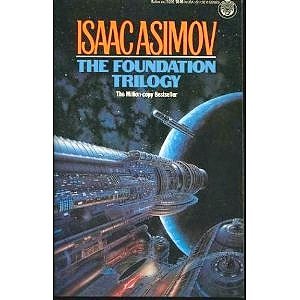
Copyright owner: Gnome Press
Isaac Asimov’s Foundation was first published in 1951, the first in a series of books. The series imagines a galactic empire in the distant future on the verge of collapse, predicted by one of its brightest minds of that time, Hari Seldon, in something he called “psychohistory.” Psychohistory is imagined to allow a person to mathematically predict what masses of humans will do with complete accuracy. While an individual would be unpredictable, individuals don’t usually matter, mass movements do. Seldon tries to shorten the amount of time the galaxy will spend in barbarism by creating the Foundation, which will be dedicated to preserving civilization and helping rebuild a second galactic empire.
Influenced by other sci fi tales of empire and histories like Gibbon’s Decline and Fall of the Roman Empire, Asimov’s story world is not wholly original. Really the concept of psychohistory alone was wholly new, but one radically new idea was enough to rate this series as a 4 for originality. Numerous sci-fi stories have been partially influenced by the Foundation series, including Douglas Adam’s Hitchhiker’s Guide to the Galaxy. But it has never been adapted to film or TV, so I rate it a 3 for influence on other stories. The series was a sci-fi bestseller for decades, but didn’t get the big film dollars, so 4 on sales. As far as its influence on the general populace, it suffers a bit from not being as widely-known as films are, but does lead to thinking not only about the nature of fate versus free will, but also on the power of individual action versus collective action. The books have influenced real-world scientists and inventors (as mentioned in the linked article), making their impact deep, albeit narrow. So a 3 for influence on the public. Overall rating: 14.
On the downside, yet again, an entire very advanced civilization exists in the distant future in which humanity has become essentially irreligious, as if faith or belief in God is itself a sign of a lack of civilization.
6. Jurassic Park
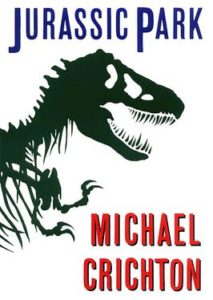
Image copyright: Alfred A. Knopf
Michael Crichton’s 1990 novel contained all the original story world ideas that the Jurassic Park and Jurassic World franchise would develop later. In essence, Crichton anticipated that advances in genetic technology would allow astounding changes to become possible in the future. Even bringing back extinct species, to include dinosaurs. The novel was intended to be a cautionary tale about the dangers of genetic engineering. Malcolm the mathematician who criticizes the park reliably serves as Crichton’s own voice on the subject–that the type of control they were attempting in the story could not succeed because “life finds a way.” Thought-provoking in its look at the role of future technology, with sidetracks into discussions of chaos theory, Jurassic Park as a novel was far more cerebral than its film adaptions would become. Which, of course, were mostly about dinosaurs eating people. đ
The idea of bringing back dinosaurs, including the tidbit that their DNA could perhaps be salvaged from amber was wholly original at the time. However, being set in the near future of the real world limits the overall originality of the story setting, so this tale rates a 4 for originality. In terms of influence on other stories, its main influence has been to spawn its own franchise. Though some other stories have taken up the issue of genetic engineering, relatively few have–3 for influence on other stories. As far as sales go, Jurassic Park has done very well, 5 points. As far as influence on public discourse, while the novel was clearly intended to get people talking about genetic engineering and people do talk about it because of Jurassic Park to a degree, I would say the rest of the franchise became all about seeing dinosaurs for most people and watching people get eaten. So 3 for influence on public discourse. 15 points overall.
Downsides–kinda violent, albeit with limited gore. And maybe there’s a person or two who calls on God as he’s about to be eaten. But overall, JP is as irreligious as anything else. Faith is simply erased from mention, as if nobody with personal faith would even be around in such a story world. Because, you know, faith is so unusual…
5. One Piece

One Piece: Image copyright Eiichiro Oda
First created as a manga by Japanese artist and illustrator Eiichiro Oda, One Piece features a Monkey D. Luffy with a band of pirates looking to become next king of the pirates by acquiring the “one piece” treasure. When you mention pirates looking for treasure, my brain starts to go into “I’m bored now mode,” but assurances from multiple people on Facebook that this is a great story and very original led me to dig deeper. Lots of strange creatures and animals exist in Oda’s fantasy setting. The world itself consists of a vast ocean and one long, thin continent. Demon fruit and the latent ability of “haki” makes something like a unique and very unusual magic system. From what I gather this story is full of unexpected details at every turn, details the story makers have meticulously build upon over time.
So, in part taking the word of others here (I’ve never seen One Piece; I’ve only read about it), this story world is wildly original, yet internally consistent–5 points. The influence on other stories seems limited (as far as I can tell) to its own franchise. But the One Piece franchise is enormously popular worldwide, with manga comics, anime films, TV, video games, and even theme parks! Since it’s influence is enormous but mostly within its own franchise, I’ll give a 4 for influence. As far as sales go, while One Piece has had limited success in the USA, its sales worldwide top the charts for manga and anime–5. Influence on public discourse, as in ideas that make people think about the nature of reality or decide to become a scientist or something–uh, as far as I can tell, One Piece has very little of that–1 point (if you disagree, feel free to mention One Piece’s influence on the public in the comments below). 15 points total.
On the downside, I can’t say. I haven’t experienced One Piece. I could guess that the show contains no references to God at all, but it in fact may reference God. It certainly does reference supernatural power. Could it reference that power in a way that could promote substituting a reverence for supernatural power outside of God for a relationship with God? I don’t know. Perhaps. (Most stories have a downside of some kind, though not all are equal in that respect…)
4. Gattaca
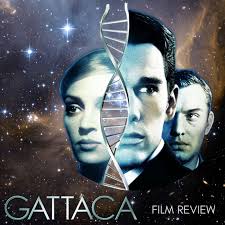
Image source: DNA podcast
The 1997 film Gattaca responds to the same scientific advances in genetic engineering that inspired Jurassic Park but talks about how genetic technology might be applied to human beings in the future. By imagining a society where genes are seen as destiny and the elite consist of those whose genes have been cleansed, the story focuses around Vincent Freeman, who is not part of the genetically engineered upper crust but seeks to join it by faking his DNA profile. The story questions the value of attempting to re-engineer the human race from a perspective mostly critical of any attempt to do so. But the desire to get rid of genetic defects receives a measure of sympathy as well.
By creating an immersive story world in which continual genetic testing was essential to establishing a person’s identity and status, Gattaca made its central issue of a person’s genetic status impossible to ignore and also key to the story. I give it 5 for originality. In terms of influence on other stories, Gattaca probably was more influential in showing its elite separated from the ordinary masses, established by continual testing. That situation was picked up by other stories such as Elysium but overall, looking at genetic fitness did not become a feature of numerous other stories–3. Gattaca’s sales at the time were disappointing, though it’s seen as a classic today, and it hasn’t spawned a franchise–2. As far as influence on public discourse, my subjective estimation is Gattaca did a great deal to bring eugenics to public attention-even for people who hadn’t seen the film. 5 points for that. 15 points overall.
On the downside, Gattaca features profanity and some sexuality and again, if there’s any reference to God in the tale, I don’t remember it. By the way, the concept of God would be pertinent to the idea of what it means to be human and what we humans have the rights to change about humanity. But that’s a controversy the film avoided.
3. 1984
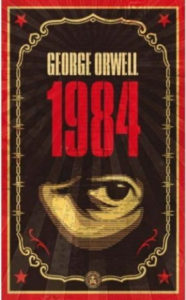
Copyright: Harvill Secker
Nineteen Eighty-Four, as the novel’s name is sometimes written, reveals a future dictatorship (from the time of writing) in which government control is pervasive over everyone. The novel anticipates the technical capacity to spy on everyone but is most innovative in imagining the language of this new world, Newspeak, a language designed to cover up truth. The protagonist, Winston Smith, becomes involved in a sexual relationship, which causes him to question propaganda for a while, though he is captured and re-educated and ends the story saying he loves “Big Brother,” the ubiquitous dictator of that part of the story world.
The setting of 1984 has clear parallels with Huxley’s Brave New World written seventeen years beforehand and was also inspired by Soviet communism, so this story is less original than most others on this list–3. Orwell’s story has rarely been exactly imitated, but the basic dystopian framework he laid out has influenced numerous other stories, including Gattaca. But that influence didn’t come from 1984 alone–4 points. As far as sales are concerned, Orwell’s novel has always sold well and continues to sell well, though not in the same category as One Piece–4 points. In terms of influence on public discourse, it’s difficult to imagine a story doing more to make the public generally leery of propaganda and government control, it’s main concerns–5 points. Total: 16 points.
Negatives: as far as lack of references to God are concerned, a dystopian hellhole of a story setting is a perfect time to refrain from mention of God if you ask me. Though it’s interesting that sex is what caused Winston to question the party. Because the party suppresses all forms of joy, including sex apart from reproduction. So in effect following a natural human impulse, one the Bible would classify as sinful outside of a marriage, is portrayed in a positive light, as helping Winston. Which I wouldn’t agree with.
Note there’s a joy and freedom in contact with God, as well as sexual joy, one more to what I would think the point is–that is, the government can control my body, but they can’t control my mind. Though in fact, 1984 declares a totalitarian dictatorship can control your mind…
2. The Matrix
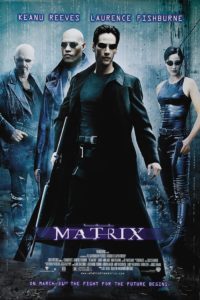
Image copyright: Warner Brothers
1999’s The Matrix perhaps could be accused of being less original than I’m going to give it credit for. Cyperpunk had been done before The Matrix, starting with William Gibson’s Neuromancer (ironically perhaps, published in 1984). Gritty dystopian had been before, such as in 1984. But The Matrix uniquely combined the gritty post-apocalyptic world of the film’s Zion with the slick dystopia of The Matrix itself. Even folding in a superhero story. Each one had been done, but not all in one package. Also the movie contains numerous themes that relate to religion and an examination of the nature of reality–for example, in some ways Neo is like a Christ figure, though in other ways not.
Overall, I rate this film 4 for originality. Its focus on martial arts and slick dystopian feel I would say influenced plenty of other movies, 4. The sales of The Matrix were very good, but leveled off somewhat as the series continued, 4. And while not everyone talks about The Matrix in a philosophical way, ideas like taking the red pill instead of the blue pill have entered common talk. The movie also gets people thinking about the issue if what we see and sense really is a reliable indicator of what the real universe is like. A very important topic when talking about science and faith–4 points. 16 points total.
Downsides? A number of things. Sensuality (though not sex), profanity, violence, an implication at one point that Buddhists may be right in how they see the world as one that can be manipulated by meditation. Worse, later in the series it would be awfully easy for someone to compare The Architect (the master computer program enslaving humans) with God–a very negative view of God. Though Messianic ideas also attach to Neo, in some ways his entire world and the colony of Zion, while we can draw parallels with the Christian life, in reality form more of a substitute for God’s work in the world than an allegory for it.
1. Alice in Wonderland
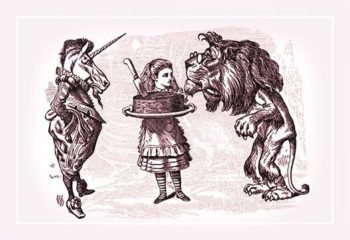
Painting by Sir John Tenniel
It’s hard to be more original than the 1865 novel that made travel to an entirely different world as simple as falling down a rabbit hole. The influence of Alice In Wonderland on portal fantasies has been tremendous. With all kinds of strange references that were meant to have a zany appeal to children, this story has also been hugely influential on children’s literature. Nearly all children’s literature. Lewis Carroll also embedded a number of mathematical puzzles in his tale and certain scenes that have an appeal to adults.
The most original concept of Carroll’s was simply passing down a rabbit hole to enter another world. But much of the setting was certainly original–I give this story 5 points. In terms of influence, as Josh Foreman pointed out on Facebook, even Oz and The Chronicles of Narnia owe the basic concept of a portal to a fantasy world to Carroll. How could it be more influential?–5 points. Certainly Alice in Wonderland has been a success in sales and in many translations and newer versions of the original–5 points. Only in terms of influence on public discourse does this story lag behind, since few people I know discuss it regularly–2 points. 17 points total.
Downsides? I must confess not having read the original novel. I’ve only watched several film adaptations, which may not have been faithful to the original tale. What I saw was a secular as any other tale in the list here. Though the original may not have been, so I won’t comment further on that topic.
Conclusion
Based on the list I’ve compiled, the most original stories don’t necessarily have to be the ones that get people talking about important issues. But may of them do–and for many, the issues they bring up rather overtly at times make the story more interesting than it would otherwise be, not less.
But readers, what do you think of the list itself? Hate it? Agree / disagree with particular points? Have your own list you’d like to share? Please let me know your thoughts in the comments below!
(By the way, below is the link to my podcast talking about the same subject in different words:)
https://travissbigidea.podbean.com/e/top-ten-most-original-speculative-fiction-story-worlds-part-1/
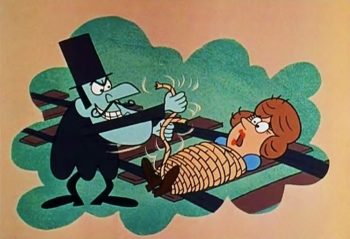 laugh. But though it gets no respect now, melodrama was a reigning art form in its day. Because we are interested in all art forms here â at least all the art forms we are presently thinking of; donât test us â weâre going to consider the most marked characteristics of melodrama. Hat tip to Robert M. Lewisâ From Traveling Show to Vaudeville, an excellent review of American entertainment.
laugh. But though it gets no respect now, melodrama was a reigning art form in its day. Because we are interested in all art forms here â at least all the art forms we are presently thinking of; donât test us â weâre going to consider the most marked characteristics of melodrama. Hat tip to Robert M. Lewisâ From Traveling Show to Vaudeville, an excellent review of American entertainment.





























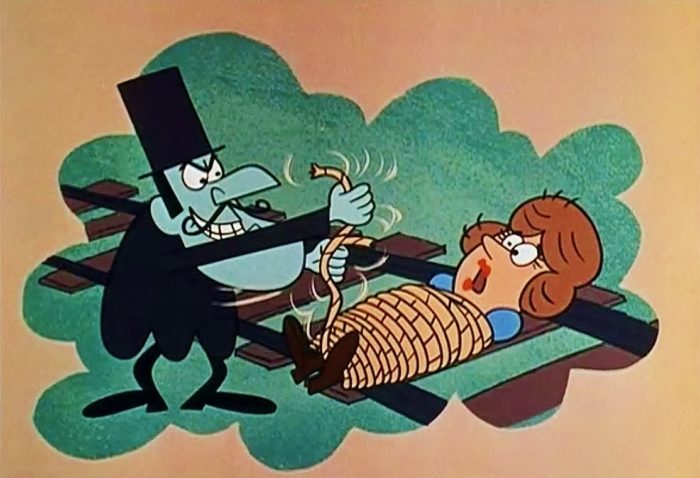
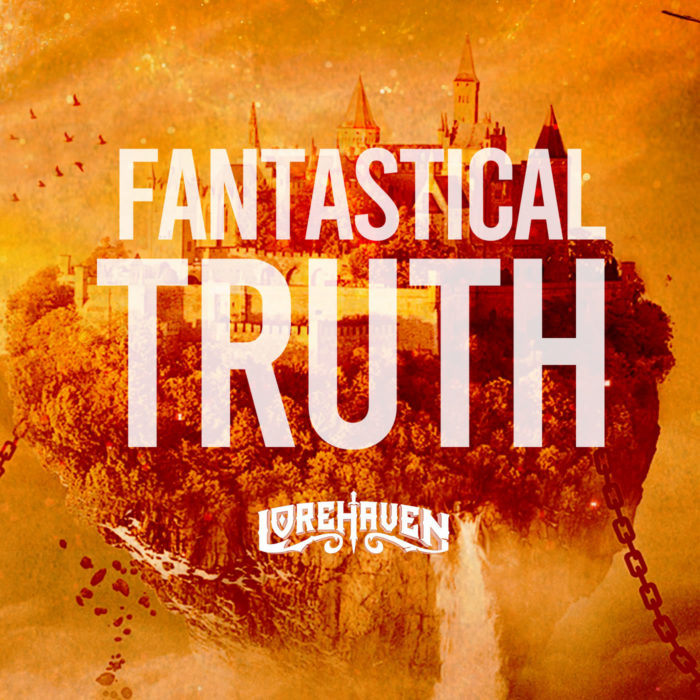

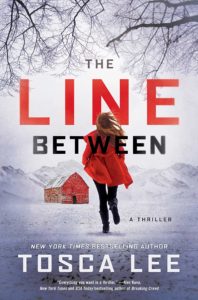


 I’ve thought the same thing about children. Parents who don’t homeschool—at least some of them—have expressed some frustration about helping their kids fill up their days. I mean, there’s just so much coloring a kid can do! After a while the best toys or games become a bit mundane.
I’ve thought the same thing about children. Parents who don’t homeschool—at least some of them—have expressed some frustration about helping their kids fill up their days. I mean, there’s just so much coloring a kid can do! After a while the best toys or games become a bit mundane.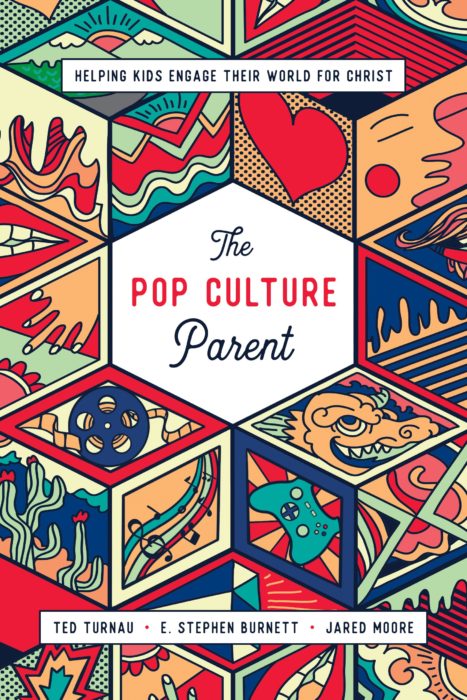

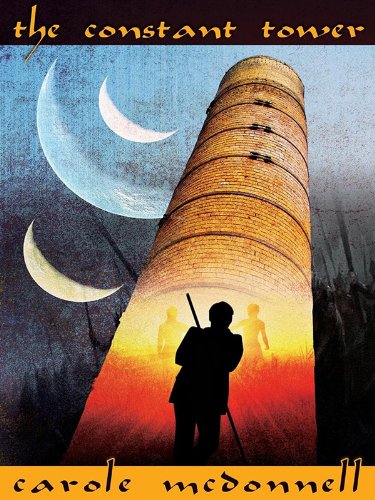
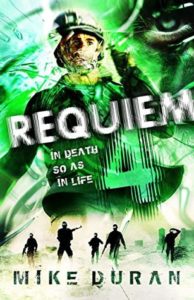
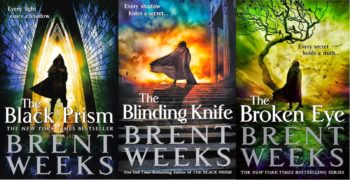
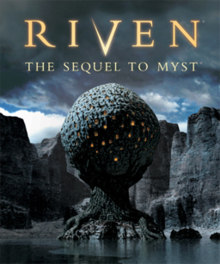
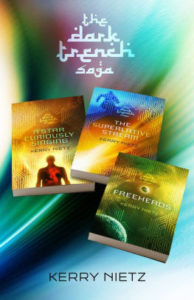
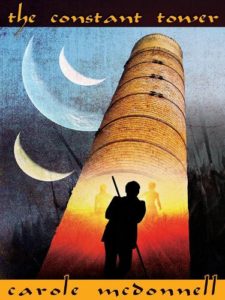
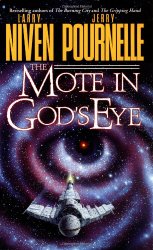
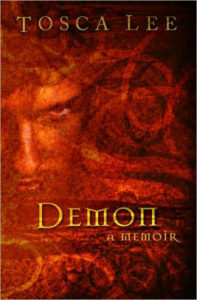
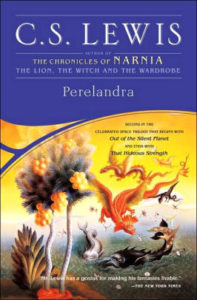
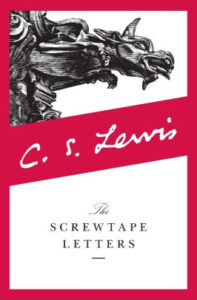
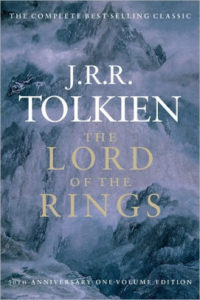
 Exploring the resurrection of our bodies
Exploring the resurrection of our bodies
 God hasn’t sent a modern day prophet to tell us why things happen as He did during Israel’s history before their exile. But we don’t actually need a modern day prophet because we have the ancient ones, inspired by God, collected in the Bible.
God hasn’t sent a modern day prophet to tell us why things happen as He did during Israel’s history before their exile. But we don’t actually need a modern day prophet because we have the ancient ones, inspired by God, collected in the Bible.












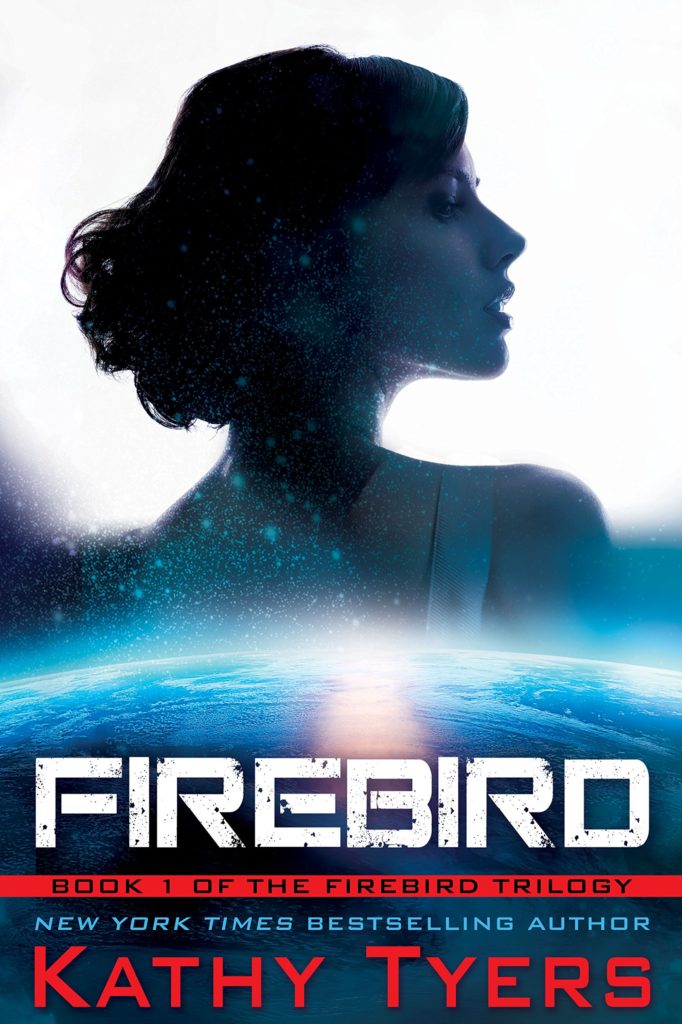
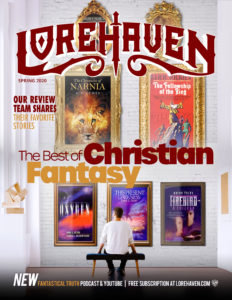
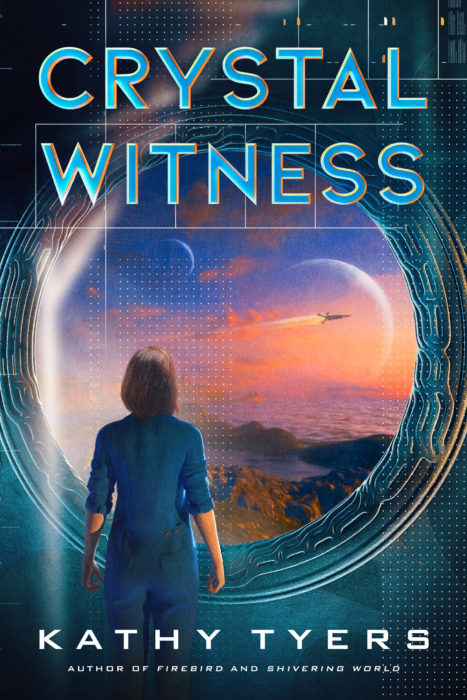 Our questions include:
Our questions include:
